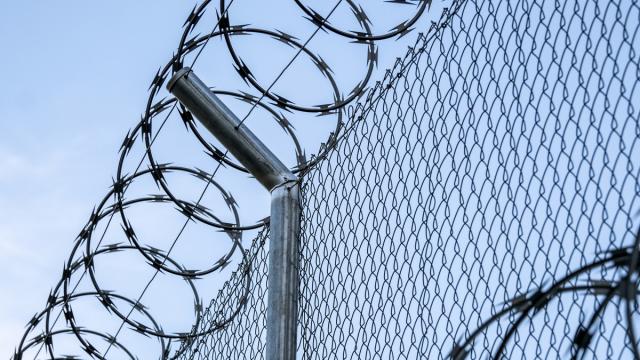Home Affairs officials have admitted a new bill could see a blanket ban on mobile phone usage by those in immigration detention centres around Australia.
A Senate inquiry hearing on the bill, which is expected to deliver its findings in August, heard from members of the Department of Home Affairs on why they felt Border Force officials needed extra search and seizure powers in the country’s immigration detention facilities.
[related_content first=”1223834″]
Home Affairs lawyer, Pip De Veau, was asked by Tasmanian Senator, Nick McKim, whether the proposed legislation could result in a blanket ban of mobile phones if directed by the Minister. She conceded it could, despite reiterating it’s not the department’s intention.
“Conceivably, theoretically, it’s possible but I would submit there are any number of handbrakes through that process that would suggest that even if [a blanket ban] were to be the intent — and I don’t say that it is — that you might not end up there,” De Veau said in response.
The Bill, Migration Amendment (Prohibiting Items in Immigration Detention Facilities) Bill 2020, was first introduced in May and would give the Minister powers to prohibit certain items in detention centres. Specifically, the Department was seeking the power to remove drugs, mobile phones, SIM cards and internet-capable devices from detainees after “taking into account a range of considerations”.
“Evidence indicates that detainees are using mobile phones and other internet-capable devices to organise criminal activities inside and outside immigration detention facilities, to coordinate and assist escape efforts, as a commodity of exchange, to aid the movement of contraband, and to convey threats to other detainees and staff,” the bill’s explanatory memorandum reads.
The proposed powers would also grant detention facility officers, including Border Force officials, new search and seizure powers in order to find any of the ‘prohibited’ items without the need of a warrant.
Concern for welfare of those in detention centres
Earlier in the hearing, the Australian Human Rights Commissioner Edward Santow said the bill’s reach was disproportionate and could seriously affect people in detention already dealing with a tough situation.
“The Australian Human Rights Commission … considers the bill impinges on human rights in ways that are unnecessary and disproportionate,” Santow said in the hearing.
“The Commission detention inspections have shown how mobile phones can be a lifeline for people in detention, connecting them to family and vital sources of support.”
Instead, as the government has said it doesn’t intend to impose a blanket mobile phone ban, it proposes it writes it out of the legislation.
“We consider that it would better reflect the government’s aims, if were amended to rule out that possibility,” Santow said.
The government’s Commonwealth Ombudsman Michael Manthorpe told the hearing while he did not have a policy position on the proposed bill, it did seem the powers were broad-reaching.
“A decision to seize telephones from detainees who are using them to facilitate criminal activity may be appropriate,” Manthorpe said.
“But the decision to ban telephones from a whole facility, when only a small cohort of detainees are using them for such purposes, would lack of proportionality and fairness.”
A report on the senate committee’s findings is expected to be released on August 5.
